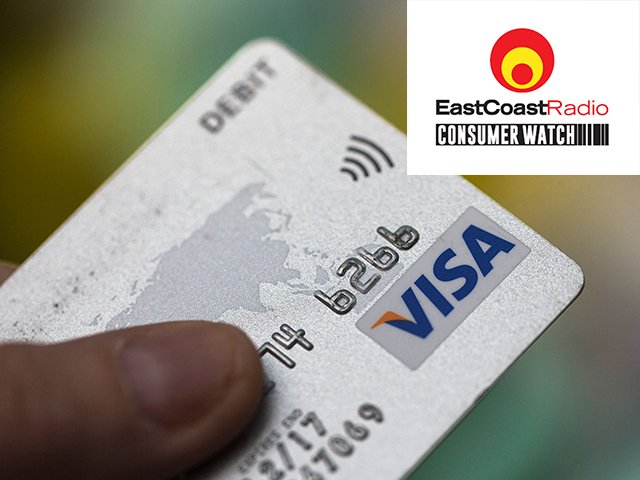Wendy on paying credit when it’s due
Updated | By Wendy Knowler
The surest way to incur extra credit card costs is to either pay less than the minimum amount due on your statement, or pay after the due date - even a day after.

Do that, and you’ll be charged interest on the full outstanding amount.
Many who have paid too little or too late, often inadvertently, ask whether it’s legal for the banks to charge them interest on the entire outstanding amount.
Yes, apparently it is.
Essentially it works like this - the banks won’t charge you any interest on your credit card purchases for up to 55 days, but if you pay just one cent short or one day late, then they whack you with the full amount of interest due – not just the interest on the under-payment.
Some people take advantage of that interest-free period by paying the full balance reflected on their statement every month.
Jay's credit repayment
A Glenwood resident, who asked to be identified only as “Jay” is one of them. He resisted getting a credit card for years, and when he finally did, it was for the convenience, not the credit.
“You 55 days interest free, so what I’ve always done is pay the entire amount owing every month, thus avoiding any interest payments,” he said.
That worked for Jay for 17 years in fact, he'd usually play slightly more than the full amount owing. That is until this month, when he made a small, but costly mistake.
“I usually round the outstanding balance amount off to the nearest hundred. So this month my credit purchases was R22 150, and my intention was to pay R22 200. But somehow I ended up paying R22100 instead of R22 200, short paying them by R50. What shocked me was the fact that they charged me an amount of R379,43 in interest. I thought that was a bit steep for a short-pay of just R50.”
So he sought an answer from his bank and when he got it, he asked for it in writing. This is what he got:
“The reason you were charged the interest of R379 is because you did not pay the amount you were owing in full. Otherwise you wouldn’t have been charged the interest.”
Yes, but interest on the full amount? He lodged an online dispute with his bank on Monday but hasn’t had a response yet.
In my experience, if you lodge a dispute, and you have an excellent track record in managing your credit card account, your bank will waive that interest. But only once.
So I’m hoping that will be Jay’s experience.
What you need to know
What many people do is pay the minimum amount payable, as displayed on monthly credit card statements.
Try not to only pay only the minimum amount due every month. If you do that, you’ll pay the most interest, and take the longest time to pay off the debt, plus it signals to credit providers that you’re battling, so it will affect your credit score. Paying more improves your score and makes you a more attractive prospect to credit providers.
And what you really don’t want to do is go over your credit limit because that will earn you a penalty charge - and many people end up doing just that, and not by spending..
If you are constantly skating very close to your credit limit, there’s a very good chance that when your bank adds its annual card charge to your account, that few hundred Rand will push you beyond your approved limit, and then you’ll be saddled with a penalty fee. Not good.
And if you’re being hounded to pay an old credit card debt, chances are it has prescribed.
With some exceptions, including State debt and home loan debt, a debt prescribes if, in the previous three years, you haven’t made a payment, acknowledged the debt in any way, or been summonsed in respect of it.
So tell the collector this: “The alleged debt has prescribed. So please either prove that it has not, or close my file.”
If the debt is still current and you’ve either defaulted or you’re about to, contact your bank, be honest about your situation and negotiate a lower monthly repayment.
If you’re too far gone; drowning in many debts, and you still have an income, consider debt counselling as a way of paying off those debts and getting back on your feet.
Show's Stories
-
Battle of the biryanis: Indian biryani vs South African biryani
Who do you think would win this battle of the biryanis?
Vic Naidoo 7 hours ago -
Would you quit your job live on social media?
A viral trend shows people quitting their jobs in live videos.
Vic Naidoo 7 hours ago